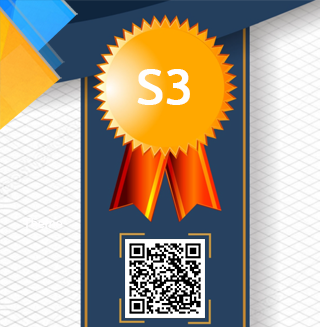Cognitive Behavioral Therapy for Post-Stroke Depressed Patients in Palangka Raya
DOI:
https://doi.org/10.25311/keskom.Vol7.Iss1.877Abstract
Post-stroke depression is found to be around 20-65%, this prevalence shows a high enough number. Lack of attention to post-stroke depression causes the patient's condition worsen, while appropriate intervention and treatment of depression can benefit healing and even shorten the rehabilitation process. This study aims to determine the effect of cognitive-behavioral therapy on post-stroke depression patients in the city of Palangka Raya. The method of this research is quantitative research with a type of pre-test post-test control group design research with a total sample of 50 post-stroke depression patients divided into two groups: the treatment group and the control group. Kuesinoer in this study used the Hamilton scale instrument (HDRS) consisting of 20 questions to measure the level of depression in post-stroke patients. In the treatment group, cognitive behavioral therapy intervention sessions session 1-4 were given with two meetings. Data analysis in this study was carried out through univariate and bivariate analysis with paired t-tests. The results showed that there were significant differences in the average value of depression rates of post-stroke patients in the treatment group before and after cognitive behavior therapy with p <0.05 and IK did not exceed zero. It is expected that nurses can become educators, motivators, and facilitators as well as family support systems in treating post-stroke depression patients
Downloads
References
Acivena, (2010), Perubahan Fisiologis Pasca Stroke. Rineka Cipta. Jakarta
Ardi Muhammad (2011) Analisis Hubungan Ketidakmampuan Fisik Dan Kognitif Dengan Keputusasaan Pada Pasien Stroke Di Makasar, Fakultas Keperawatan, Universitas Indonesia, http://lib.ui.ac.id /tesis/
Azizah, (2011). Keperawatan Jiwa (Aplikasi Praktik Klinik). Yogyakarta : Graha Ilmu.
Badan Penelitian dan Pengembangan Kementerian Kesehatan. RI (2013). Laporan Nasional Riskesdas 2013. http://www.Litbang.depkes.go.id
Biantoro, Tohri, T., Juariah, L. (2015). Hubungan Karakteristik Individu Dengan Tingkat Depresi Pasca Stroke di Poliklinik Saraf RS Rajawali Bandung. (Jurnal Stikes Ahmad Yani)
FIK UI, (2015). Modul Terapi Keperawatan Jiwa.www. academia.edu
Hamilton, M. 1960, „A Rating Scale For Depression‟, Jounal Of Neurology And Psychiatry, [http://www.assessmentpsychology.com]Disability, Journal of Disability Policy Studies,16,No(4,Januari2006),(http://dps.sagepub.com/content/16/4/236)
Kauhanen, M.L.dkk (2014). Poststroke Depression Correlates with Cognitive Impairment and Neurological Deficits.Dallas: American Heart Association.
Kristyaningsih. T, (2009). Pengaruh perilaku kognitif terhadap harga diri dana kondisi depresi pada penderita gagal ginjal kronik di ruang hemodialisa RSUP Fatmawati Jakarta. Tesis Universitas Indonesia
Lincoln, NB & Flannaghan, (2010). Cognitive Behavioral Psycotherapy for Depression following Stroke:A Random Controlled Trial.Jurnal American Heart Assosiation
Maria Magdalena Purba, & Nang Randu Utama, (2019). Disabilitas Klien Pasca Steroke terhadap Depresi. Jurnal Kesehatan. 10(No.3 November 2019), 364-353.
Munir, B., Nasution, A. A., dan Purnamasari, Y.(2016). Determinan yang Mempengaruhi Depresi pada Pasien Post Stroke Infark di Rumah Sakit Saiful Anwar Malang. Malang Neurology Journal.
(No. 2) Pp : 59 – 62.
Muttaqin, Arif, (2010). Buku Ajar Asuhan Keperawatan Klien dengan Gangguan Sistem Persarafan, Jakarta: Salemba Medika
Nidya Rizky, (2016), Pengaruh cognitive Behavior Therapy (CBT) Untuk Menurunkan Symtom Depresi Pada Pasien Pasca Stroke.Pustaka.unpad.ac.id.
Rahayu, (2014), Hubungan Frekuensi Stroke dengan Fungsi Kognitif Di RSUD Ariin Achmad,
Ratep.N.Putra K .(2014). Depresi Pasca Stroke: Diagnosis dan Tatalaksana.Cemin Dunia Kedokteran : 41(No.2) 901-905
Robinson RG. (2012), Post-stroke depression: prevalence, diagnosis, treatment, and disease progression.Biol Psychiatry
Sarandria.(2012). Efektifitas Cognitive Behavior Therapy (CBT) untuk Meningkatkan Self-Esteem pada Dewasa Muda. Tesis:Fakultas Psikologi UI.
Setyoadi, dkk. (2011). Terapi Modalitas Keperawatan pada Klien Psikogeriatrik. Jakarta: Salemba Medika.
Sugiarti (2010). Determinan disabilitas pada lanjut usia di indonesia (analis data sekunder riset kesehatan dasar tahun 2007) tesis fakultas kesehatan masyarakat Program Pasca Sarjana Depok
Sugiyono (2009). Metode penelitian kuantitataif kualitatif dan R&D. cetakan ke 7 .Bandung Alfabeta
Stuart, G.W. (2009). Principle and Practice of Psychiatric Nursing. St Louis: Mosby.
Suwantara (2014) Depresi Pasca Stroke: Epidemiologi, rehabilitasi dan psikoterapi: Jurnal Kedokteran Trisakti 23 (No 4 Oktober –Desember 2014 ).
Tantular, (2015) .Gangguan mood pada kiln Stroke Ikhtisar Pustaka Jurnal Ilmiah Kedokterean
Yayasan Stroke Indonesia (Yastroki), (2012). Angka kejadian Stroke Meningkat Tajam.http://www.yastroki.or.id/read. php?id=317
Downloads
Submitted
Accepted
Published
How to Cite
Issue
Section
License
Copyright (c) 2021 Jurnal Kesehatan Komunitas

This work is licensed under a Creative Commons Attribution-NonCommercial-ShareAlike 4.0 International License.





























